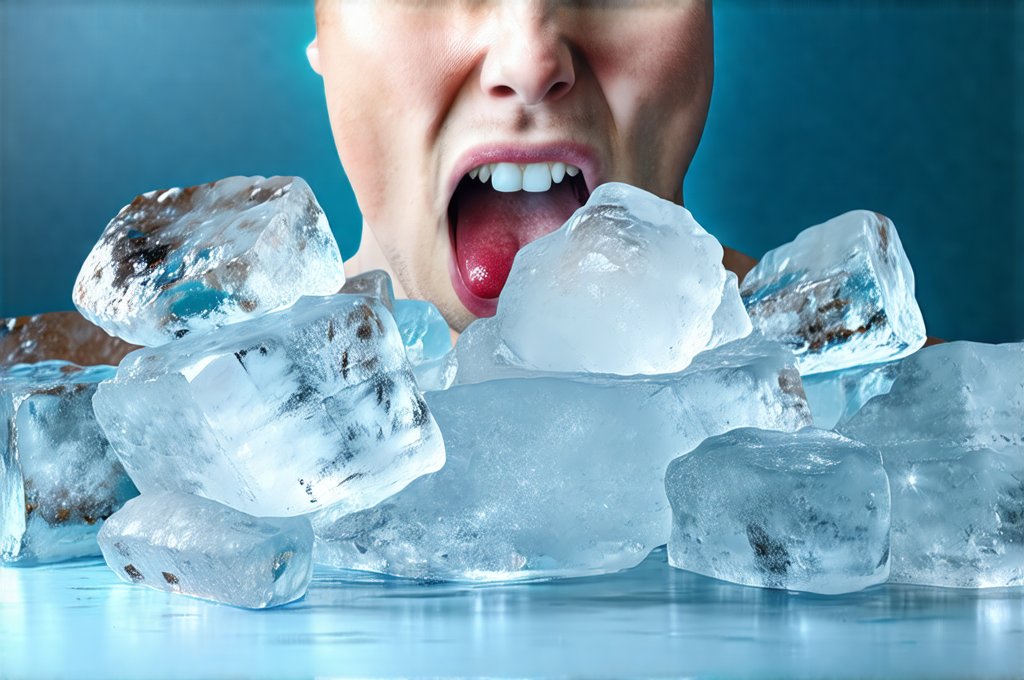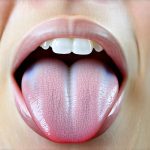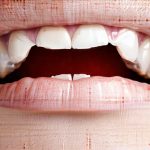The seemingly innocuous habit of chewing ice – something many people do without thinking – is increasingly being scrutinized for its potential impact on overall health, particularly concerning gut wellbeing. Often dismissed as a simple coping mechanism for stress, boredom, or even just a refreshing sensation, habitual ice chewing can initiate a cascade of physiological effects that extend far beyond the oral cavity. While seemingly harmless, this practice can inadvertently disrupt the delicate balance within our gastrointestinal system, potentially leading to discomfort and even contributing to long-term health issues. It’s important to understand that the connection isn’t necessarily direct causation but rather a complex interplay of factors where ice chewing acts as one piece of a larger puzzle.
The gut microbiome – the trillions of bacteria, fungi, viruses, and other microorganisms residing in our digestive tract – plays an absolutely critical role in everything from digestion and nutrient absorption to immune function and even mental health. Disruptions to this intricate ecosystem, known as dysbiosis, have been linked to a wide range of conditions including irritable bowel syndrome (IBS), inflammatory bowel disease (IBD), allergies, autoimmune diseases, and even mood disorders. Understanding how ice chewing might contribute to such imbalances is key to making informed choices about our habits and prioritizing gut health. This article will delve into the mechanisms by which this seemingly harmless behavior could potentially disrupt the delicate balance of your digestive system, offering insights into why you might want to reconsider that handful of cubes.
The Cooling Effect & Digestive Disruption
The core issue isn’t necessarily the ice itself, but what happens after it’s chewed and enters the digestive system. Our bodies maintain a very specific temperature range for optimal enzymatic function – essentially, how well our digestion works. Introducing extremely cold temperatures can temporarily slow down or even inhibit these processes. Think of it like trying to run software on a computer that’s overheating; performance suffers. This is particularly relevant in the stomach, where digestion begins. The sudden influx of icy coldness can constrict blood vessels and reduce digestive efficiency, potentially leading to:
- Slower gastric emptying (the rate at which food moves from the stomach to the small intestine).
- Reduced enzyme activity needed for proper food breakdown.
- Increased risk of bloating, gas, and abdominal discomfort.
These disruptions aren’t major events in a single instance, but chronic exposure to this cooling effect through habitual ice chewing can put consistent stress on the digestive system. This constant challenge may contribute to inflammation – a hallmark of many gut disorders – as the body works harder to compensate for the impaired digestion. It’s also worth noting that individuals with pre-existing digestive conditions like IBS are likely to be more sensitive to these temperature fluctuations, experiencing symptoms more acutely.
Furthermore, the act of chewing ice can sometimes lead to micro-trauma within the mouth and esophagus. While usually minor, repeated trauma could theoretically contribute to inflammation which, while localized initially, may indirectly impact gut health through systemic effects. This isn’t a primary concern for most people but it’s another facet of the potential consequences.
Pica, Iron Deficiency & Gut Health Connection
Often, habitual ice chewing is linked to a condition called pica – the persistent craving and consumption of non-nutritive substances like ice, clay, or dirt. While the exact cause of pica remains complex and debated, one strong association has emerged: iron deficiency anemia. The body’s attempt to address low iron levels can sometimes manifest as unusual cravings, including for ice (pagophagia).
Iron is crucial for many bodily functions, including oxygen transport via red blood cells. When iron stores are depleted, the body may experience reduced oxygen delivery to tissues and organs. Chewing ice provides a temporary sensation of alertness and refreshment that some individuals attribute to increased blood flow stimulated by the cold – although this is not scientifically proven. However, it’s crucial to understand that chewing ice doesn’t replenish iron; it merely masks the symptom while potentially exacerbating the underlying deficiency.
The connection between iron deficiency and gut health is profound. Iron is essential for maintaining a healthy gut microbiome. Low iron levels can reduce microbial diversity – the variety of beneficial bacteria in your gut – making you more susceptible to dysbiosis and its associated problems. Reduced oxygenation within the gut due to anemia can also negatively impact the function of beneficial bacteria, creating an environment where less desirable microbes thrive. This creates a vicious cycle: pica driven by iron deficiency leads to ice chewing, which may further disrupt digestion, potentially worsening iron absorption and exacerbating gut imbalance. Understanding low zinc levels can also play a role in these deficiencies.
Identifying & Addressing Ice Chewing Habits
If you find yourself habitually craving and chewing ice, it’s important to investigate the underlying cause rather than simply trying to stop the behavior without addressing its root. Here’s a step-by-step approach:
- Self-Assessment: Honestly evaluate your reasons for chewing ice. Is it boredom? Stress? Thirst? A genuine craving? Understanding your triggers is the first step towards modifying the habit.
- Medical Evaluation: Consult with your doctor and request a blood test to check your iron levels (specifically ferritin, which measures stored iron). Other nutritional deficiencies should also be explored.
- Hydration Check: Ensure you’re adequately hydrated throughout the day. Sometimes ice chewing is simply a substitute for proper hydration. Carry a water bottle with you and sip on it regularly.
Addressing the root cause – whether it’s an iron deficiency, dehydration, or psychological factors – is far more effective than simply trying to willpower your way out of the habit. If iron deficiency is confirmed, your doctor may recommend iron supplementation or dietary changes to increase iron intake. For stress-related ice chewing, exploring relaxation techniques like meditation, yoga, or deep breathing exercises can be helpful.
The Role of Inflammation & Gut Permeability
Chronic inflammation is a key driver of gut dysbiosis and many associated health problems. As mentioned earlier, the cooling effect of ice chewing can potentially contribute to localized digestive inflammation. But more importantly, the disruption in digestion caused by this habit may indirectly increase intestinal permeability, often referred to as “leaky gut.”
Leaky gut occurs when the tight junctions between cells lining the intestinal wall become compromised, allowing undigested food particles, toxins, and bacteria to leak into the bloodstream. This triggers an immune response, leading to systemic inflammation and potentially contributing to autoimmune conditions, allergies, and other health issues. A healthy gut barrier is essential for preventing this leakage and maintaining overall wellbeing.
- Dietary changes can significantly impact gut permeability. Reducing processed foods, sugar, and inflammatory fats while increasing fiber intake can help strengthen the gut lining.
- Probiotics & Prebiotics : Incorporating probiotic-rich foods (yogurt, kefir, sauerkraut) or supplements alongside prebiotic sources (garlic, onions, bananas) can promote a healthy microbiome and improve gut barrier function.
- Stress Management: Chronic stress is known to increase intestinal permeability, so incorporating stress-reducing practices into your daily routine is vital for gut health.
Beyond Ice: Holistic Gut Support
While addressing ice chewing habits is important, it’s just one piece of the puzzle when it comes to supporting a healthy gut. A holistic approach encompassing lifestyle factors and dietary choices is essential. Consider these additional strategies:
- Prioritize Whole Foods: Focus on consuming a diet rich in whole, unprocessed foods like fruits, vegetables, lean proteins, and healthy fats. These provide the nutrients your gut microbiome needs to thrive.
- Limit Sugar & Processed Foods: These contribute to inflammation and disrupt microbial balance.
- Stay Active: Regular physical activity has been shown to positively impact gut health by increasing microbial diversity and reducing inflammation.
- Get Enough Sleep: Adequate sleep is crucial for immune function and overall wellbeing, including gut health. Aim for 7-8 hours of quality sleep per night.
- Mindful Eating : Pay attention to how your body responds to different foods and eating patterns. Eating slowly and chewing thoroughly aids digestion and minimizes stress on the digestive system.
Ultimately, understanding the potential link between ice chewing and gut imbalance empowers you to make informed choices about your health. It’s not about demonizing a simple habit but recognizing its potential consequences and taking proactive steps to support your digestive wellbeing. If you are concerned about your ice chewing habits or experiencing related digestive symptoms, consulting with a healthcare professional is always recommended. Gut reactions can also indicate underlying issues. Additionally, consider if gut bacteria imbalance could be a contributing factor to your cravings and digestive distress. Finally, remember that muscle tension can also exacerbate symptoms related to digestion.


















